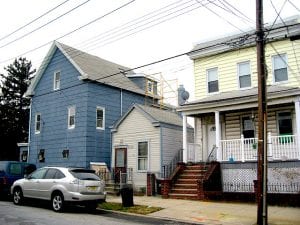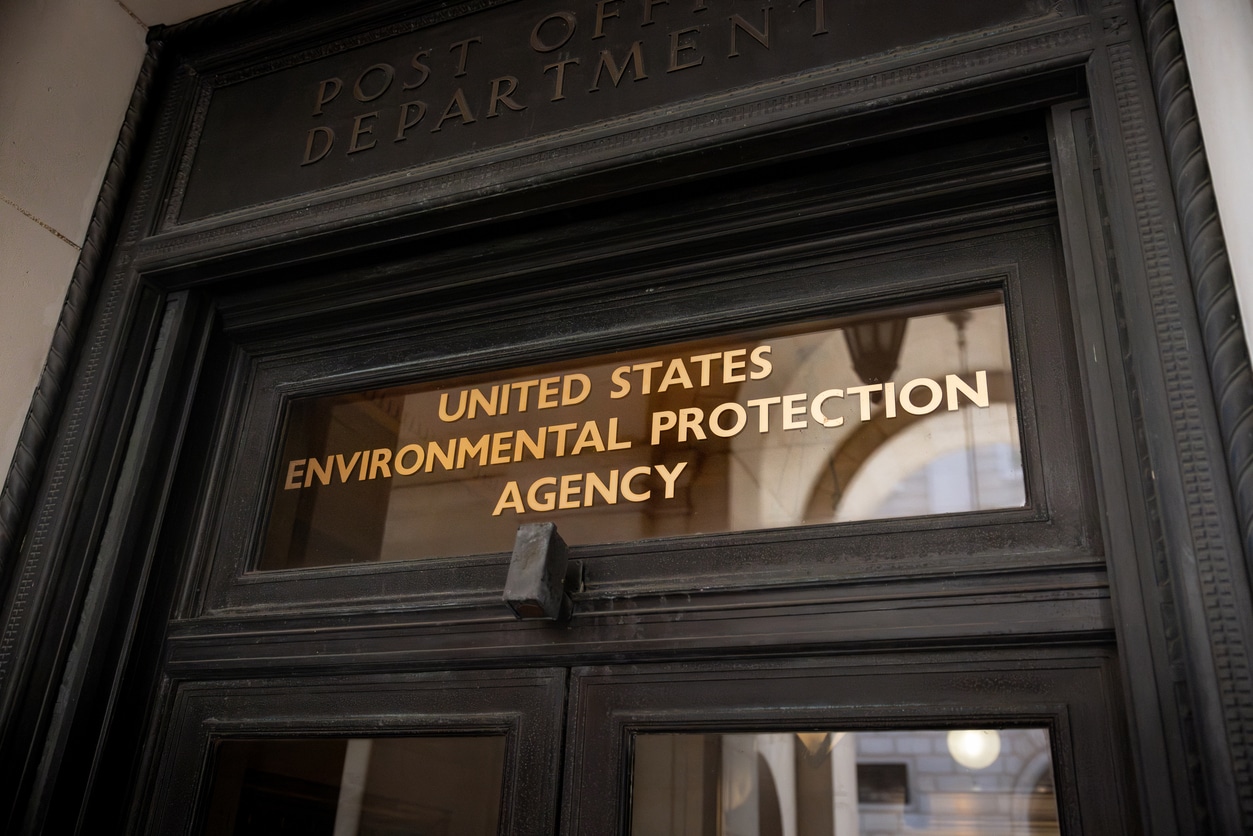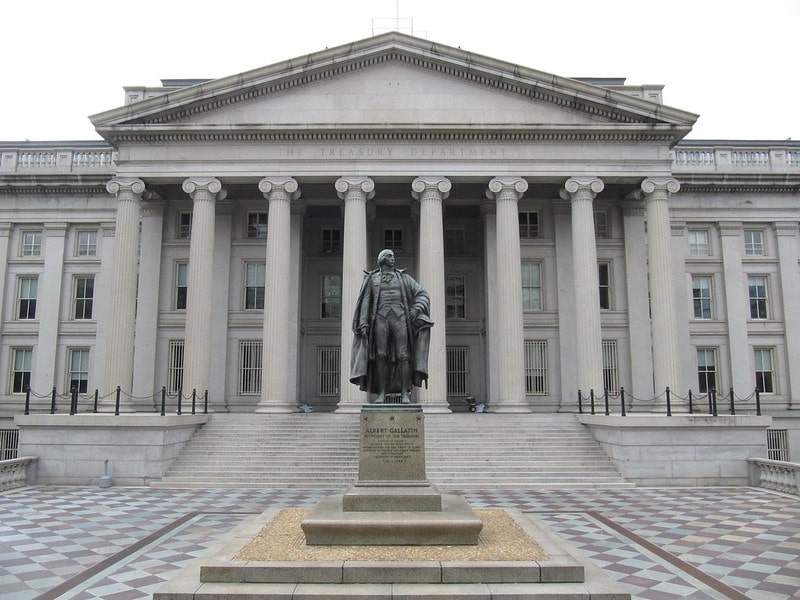
Houses in College Point, Queens. Photo by Hetz via flickr, CC BY-NC-ND 2.0.
As home prices have increased in New York and neighborhoods have gentrified, Sandra may have wanted her home to be passed on to her son and later, her grandchildren, to ensure that her family had assets in place for the future; or Sandra may have wanted her partner of 30 years to have a lifetime interest in the home, and then have the home subsequently passed onto her son. Whatever the case, the disposition of Sandra’s home was not determined by her, but by the court and court-appointed administrator whose primary interest was not to address the unwritten wishes of Sandra but rather distribute estate assets as dictated by law.
This lack of estate planning is not a rare occurrence, and in some part may be contributing to the continued wealth disparities that negatively impact low- to middle-income and minority communities.
Current Wealth
On average, over the past 50 years, the wealth of Americans (i.e. net assets such as bank savings, real estate, and businesses) has been increasing, even when accounting for the economic recession that began in 2007. The increase in wealth over the last 50-plus years has been disproportionate among different income groups resulting in an increasing wealth gap.
During this time, those in the top percentile of wealth saw their wealth increase nearly fivefold, but families with less wealth have seen their wealth either increase at a lower rate or decrease, resulting in a widening wealth gap. For instance, in New York City there is a general increase in income for all residents, but the top 1 percent found their wealth increasing at a much greater pace than those with lower incomes.
Communities of color are disproportionately impacted by this widening wealth gap. In 2016, on average, white family wealth was seven times greater than Black family wealth and five times greater than Hispanic family wealth. In economic downturns, the wealth gap increases. During the Great Recession, racial and ethnic wealth inequality among middle-income families increased and has not recovered. For example, the median wealth of middle-income Black families that were already 3 times lower than middle-income white families fell 47 percent from 2007, meanwhile, middle-income white families fell 31 percent in this period, to a median wealth of $131,900. As a result, racial and ethnic wealth inequality among middle-income families increased during or after the recession.
The negative impacts of wealth disparity are well studied and documented, with factors varying among different income and racial groups, including years of homeownership, inheritance, preexisting family wealth, and predatory practices both historic (such as redlining) and current (such as escalating deed thefts in predominantly minority communities).
And so, with a wealth gap that is not budging, the question becomes how can this trend be changed. If focused on communities that are most negatively impacted, the underused tools of estate planning may have an effect on several factors that contribute to the wealth gap, such as disparities in homeownership and inheritance.
Homeownership
Homeownership is often considered a remedy to gentrification and an antidote to poverty. Due in part to the centrality of homeownership in government programs focused on preserving affordable housing, homeownership in general has become a major component of wealth in the United States, especially for lower-income Americans. Primary residences accounted on average for about one-quarter of Americans’ overall wealth in 2016. Owning a home allows a family to amass equity, of which Americans had a record-high $14.4 trillion the last quarter of 2017.
The percentage of wealth attributed to home equity varies among income levels and minority groups. For Americans in the top 20th percentile of total wealth, homes accounted for approximately 26.9 percent of that wealth in 2007 and approximately 20 percent in 2016. For Americans in the bottom 20th percentile of wealth, homes accounted for approximately 69 percent and decreased to nearly 65 percent in that same period. A recent study found that 54 percent of all wealth owned by Black households in the United States was held in home equity.
Since the least wealthy Americans have a larger share of their wealth tied to their homes and would be most impacted by home losses, enacting measures to mitigate such losses may have greater effect in preserving and maintaining wealth in these communities. Proactive measures like estate planning—placing safeguards during and after the lifetime of an owner, such as creating wills and trusts—can be a helpful tool for the preservation and transfer of real estate assets in some low- to moderate-income and minority communities.
Estate Planning’s Role
The legal definition of “estate” is the “property individuals own, both outright and jointly—including bank accounts, real estate, stocks and bonds, vehicles, jewelry, retirement accounts and even pets.” As such, estate planning can take many forms, depending on the size and types of assets that an individual is seeking to transfer. Basic estate planning, such as creating a will or living trust, is recommended, especially for people with assets of some value or with very specific directives, yet nearly 6 in 10 American adults do not have a will or living trust. This percentage varies depending on age: 78 percent of adults ages 18-36, 64 percent of adults ages 37-52, and 58 percent of adults ages 53-71 do not have a will, while 81 percent of those ages 72 or older do.
The percentages of people with wills varies among different socioeconomic and racial groups. For example, 55 percent of Americans whose annual household income is $75,000 or greater have a will, but only 31 percent of Americans with household incomes of less than $30,000 have a will. Twenty-eight percent of non-white adults are likely to have wills while 51 percent of white adults have one.
What are Some Reasons for the Lack of Estate Planning?
Assuming that most people want to have a say in how their estate will be handled after their death, and know that there is great potential for it to be distributed in a manner that is inconsistent with their wishes, why don’t more people do estate planning? Per a recent Caring.com survey, the top reason people provided for not taking on estate planning was procrastination. Regardless of one’s wealth or lack of it, talking about or even thinking about one’s mortality is difficult, complicated, and can be overwhelming.
Many think that estate planning is only for the wealthy, but an estate can include many things, irrespective of their low monetary value. Another reason likely embedded in this assumption is a concern about up-front cost and a lack of understanding of what would occur without a plan; in other words, is it worth it to do an estate plan? If there is something of value that can be transferred to someone after a person’s death, the answer often is yes—but this is often not understood until it is too late.
Grow Brooklyn is a nonprofit 501(c)(3) organization affiliated with the Brooklyn Cooperative Federal Credit Union that offers free legal services and housing counseling services to homeowners in Brooklyn, New York. In response to the needs of the community it serves, Grow Brooklyn is one of the few nonprofits in New York that incorporates estate administrative legal services as part of its housing counseling and foreclosure prevention services.
Michael Corcoran, an attorney for Grow Brooklyn, notes how unfamiliar people are with the law and sometimes mistakenly assume their assets will be passed down as they desire, thereby negating a need for an estate plan. Other times, a person may assume certain ownership rights because they live in a home, or pay bills for the home, even though they may not have a legal interest in the home. According to Corcoran, people often assume that the expression “possession is nine-tenths of the law” is an accurate depiction of the law, but due to the complexity of inheritance law, that is very often not the case.
Many people are unfamiliar with the steps that must be undertaken when there is no will in place. The death of a person without a will often kicks off a process that can involve many other parties and costs that were not contemplated by the decedent. Corcoran notes that those with the most modest means who do not have an estate plan in place often pay the biggest price, because they or their family members can least afford the consequences of a plan gone wrong.
Why Does the Lack of Estate Planning Matter?
Estate planning can help facilitate the proper transfer of assets to family members through inheritance, which can benefit them immediately and in the future.
In transfers of estates, inheritances not only potentially increase a beneficiary’s immediate wealth, but the transfer of assets may also increase the individual’s income in a way that can assist major life changes—affecting a family’s wealth in the long term. For example, a $10,000 inheritance may not have a major impact on a family’s net worth, but it might be used to make a larger down payment on a first home, thus providing a necessary boost for homeownership, which can lead to the accumulation of wealth. As noted by Earl G. Graves Sr., the founder and publisher of Black Enterprise, “Estate planning means future generations not having to start from scratch to launch their businesses, or to finance the growth of those we leave to them. It means lessening our children’s and grandchildren’s dependence on student loans.”
Unsurprisingly, with such racial disparities in the creation of wills and living trusts, white families are five times more likely to inherit than Black families, resulting in Black families not reaping the benefits from inheritances at the same rate.
While estate planning definitely affects an individual family’s wealth, estate planning may also serve as a preservation measure that ensures economic assets stay in a community, which can limit displacement. Grow Brooklyn notes that 10 to 15 percent of the foreclosure actions they work on also need estate administrative legal services before they can be resolved. When a family member is able to stay in his or her home rather than suffering foreclosure due to unresolved estate issues, this preserves a family within their community.
What Can be Done?
Assuming that we want to address the perpetuation of racial and economic inequities within our current policies, estate planning should be explored, and more frequently used, in communities at the lowest range of the widening wealth gap. This can be done in several ways:
- Estate planning should be included in financial literacy education. Estate planning is broad and can seem overwhelming, but its importance needs to be explained. While there are resources available for financial counseling for those who are starting to accumulate wealth, there seems to be very limited resources for education concerning estate planning. At present, several government programs focus on financial literacy, including the U.S. Department of Treasury’s Financial Literacy and Education Commission, which focuses on “strategic direction for policy, education, practice, research, and coordination so that all Americans make informed financial decisions.” Estate planning should be included as part of the commission’s strategy and be integrated in government-funded programs regarding financial literacy.
- Funding must be available for estate planning and administrative proceedings. There is a cost to estate planning. Depending on the size of a person’s assets, it may be helpful to hire an estate attorney when preparing a will or a trust to ensure that one is properly protected. Something else to consider when estate planning is the cost of estate administrative proceedings that will be required if there is no will. In cases like this, the administrative process can be costly and time consuming. (In New York, a court fee must be filed and outreach must be done to all potential distributees of the estate, which often results in more litigation and more time.) As noted in Sandra’s case, the estate distribution process took nearly six years to fully resolve. Estate attorneys must be hired to protect the family’s interests, and there may be additional carrying costs during the court process.
Even when there is a will, there is often still a probate process. In New York, for any estate valued at more than $30,000, an executor is named and depending on the complexity of the estate this can take from a few months to several years. Depending on the estate’s value, executor and attorney fees in New York vary between 2.5 and 5 percent while court costs may range from $215 to $1,250.
Sometimes these fees prevent individuals, especially those who lack the funds, from moving forward with the probate process. This can lead to family members living in a home without having proper title, which in turn may result in lack of access to utilities or government programs to assist with the home, or being more susceptible to predators.
To ensure that people are not deterred by the costs of estate planning and estate administration and are able to legally acquire their assets, financial support should be provided to nonprofit organizations such as Grow Brooklyn, that can provide services at no or affordable cost to those most in need of services. In addition, when possible, states should look at ways to waive prohibitive probate fees.
- Legislation. Because estate planning services are not often used by those in low-income minority communities, people in these communities, especially those that are gentrifying, are often preyed on by individuals wanting to take advantage of the lack of succession planning. In New York City, hundreds of homeowners have been defrauded out of their homes and Brooklyn Borough President Eric Adams says he has heard from several homeowners in rapidly gentrifying areas like Bedford-Stuyvesant who were forced out of their homes due to deed fraud. In some instances, fraudsters forge deeds after reviewing obituaries. Legislation should be supported to protect members of these communities by making it more difficult to take advantage of gaps in estate planning and strongly penalizing the predators and administrators who perpetuate this fraud.
Estate planning is not a stand-alone cure to wealth disparities. The tools of estate planning only help those with assets to preserve, and thus is already limited in impact. Also, while estate planning may assist in the initial preservation of assets in communities, families sometimes find that maintaining assets in gentrifying communities is too difficult and costly, and decide to liquidate. But even with its limitations, estate planning is useful, fair, and effective, and should be employed as part of a broader plan of preservation of wealth and assets in communities of color.




1) YES, you are right this kind of thing is very much needed. 2) Research and practical experience says words matter. RICH people have estates. Thus if you are not RICH estate planning is not for you. You (the writer) are using the word accurately but the context in which this conversation will have to occur will need different words. 3) By the way, same goes for the word “bequest.” Instead, it’s a “gift in a will” since everyone has made gifts, this is just another gift, but in a will.
Great article! Transfer on death deeds are an important tool that every state should have in its toolbox to facilitate low-cost estate planning and facilitate the clear transfer of title to future generations of family members. More than a dozen states in the US now have a transfer on death deed statute, and states like Texas have also adopted a consumer-friendly deed form, to reduce need for attorneys.
This article has lead to some very good discussions. I contract with our Community Action Agency and Legal Aid to help homeowners prevent property tax foreclosure. The success has been very powerful, but we have much work to do with estates. Thank you for the thoughtful piece. Now we need to transform the ideas into action that can impact peoples lives. Looking forward to a pilot project with our Probate Court.